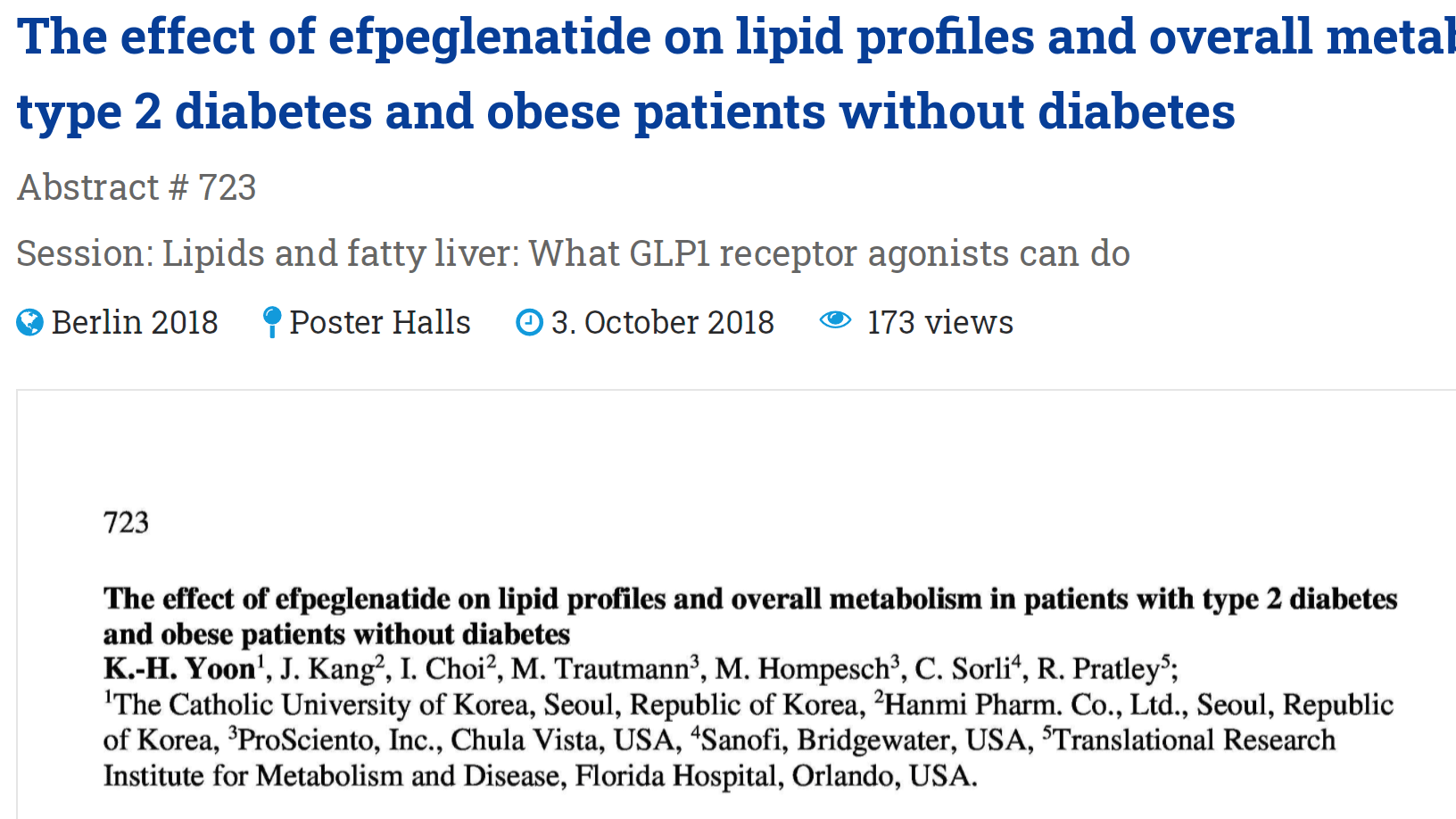About
About this Poster:
Once-weekly (QW), subcutaneous efpeglenatide is a long-acting glucagon-like peptide-1 receptor agonist (GLP-1 RA) in development for type 2 diabetes (T2D). In a 12-week Phase 2 study in patients with T2D (EXCEED 203), treatment with efpeglenatide 3 and 4 mg QW was associated with significant (p<0.05) reductions in HbA1c (−1.41% [baseline: 7.82%] and −1.61% [baseline: 7.99%], respectively) vs placebo (−0.40% [baseline: 7.99%]). Fasting plasma glucose was also reduced in the efpeglenatide 3- and 4-mg groups (−2.25 mmol/L [baseline: 9.09 mmol/L] and −2.50 mmol/L [baseline: 9.15 mmol/L], respectively) vs placebo (−0.55 mmol/L [baseline: 9.06]). In a 20-week Phase 2 study in patients with obesity without diabetes (BALANCE 205), treatment with efpeglenatide 4 or 6 mg QW was associated with significant (p<0.05) reductions in body weight (−6.63 kg [baseline: 100.81 kg] and −7.32 kg [baseline: 101.68 kg], respectively) vs placebo (−0.13 kg [baseline: 97.54 kg]).


